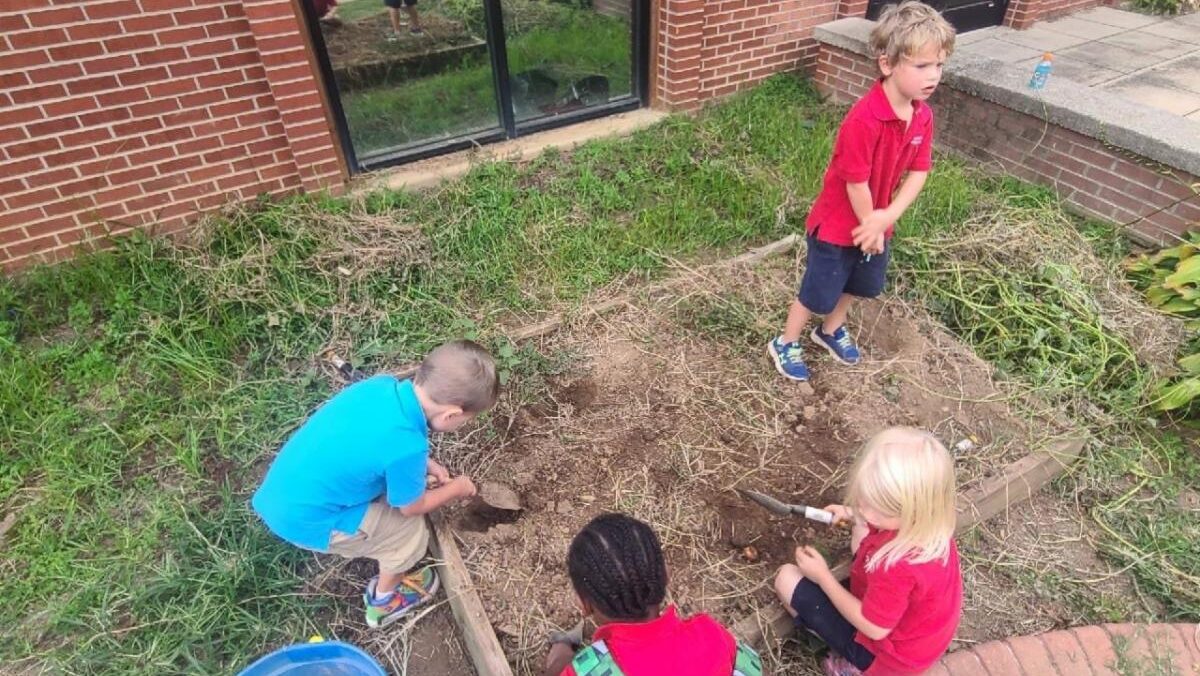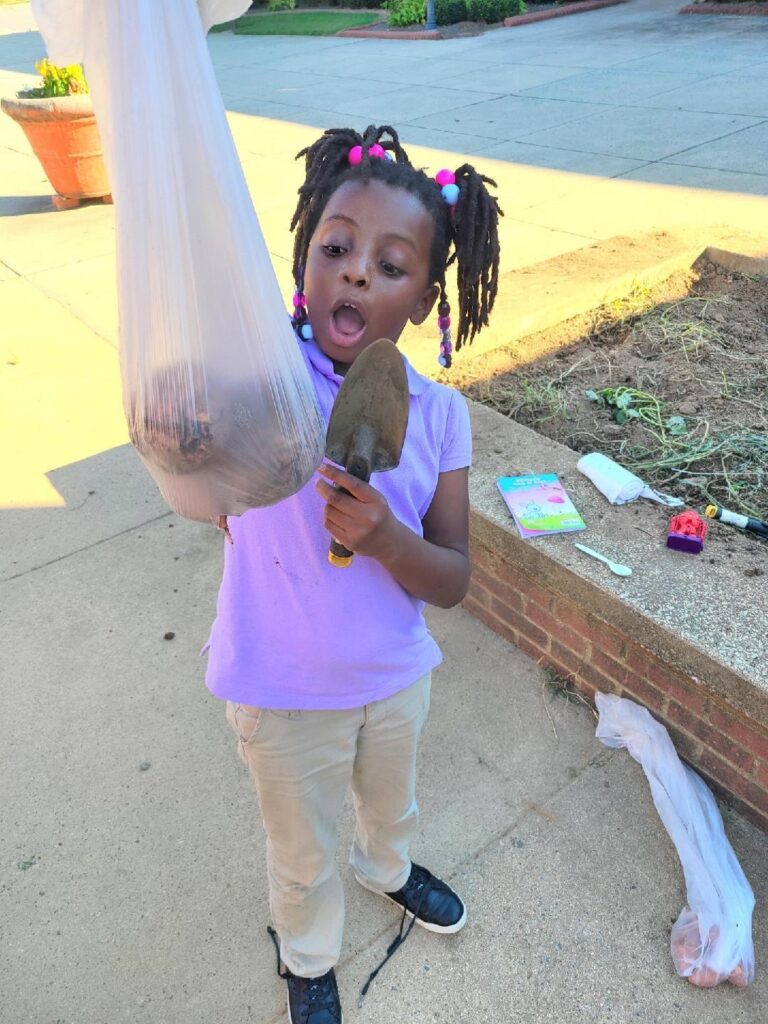School Garden Clubs: Kannapolis YMCA

According to the National Institutes of Health, the number of school gardens is on the rise, and we’re excited to be a part of that trend. How school gardens are used and who manages them varies widely. We’ve mostly focused on curriculum connections and how standards-based lessons can be delivered in the garden space. However, some gardens are additionally, or exclusively, used for a club option. This is the first article in a new series on School Garden Clubs. Doug Vernon (DV) is putting on the “reporter” hat and asking questions of garden club leaders from around the state to bring their experiences to you.
Kannapolis YMCA
Garden Club Leader: Kevin Mateer (KM)
DV: How long have you had a garden club?
KM: We started the club in the spring of 2021, so a little over 2 years.
DV: When does the garden club meet, seasonally or year-round?
KM: It is year-round. Primarily, kids from our after-school program help with the garden, and also some from the summer camp program. These are K-8 students.
DV: How do members join the garden club?
KM: Students registered in our after-school program automatically join the garden club as it is part of our after-school curriculum. We currently have about 75 garden club participants. Everyone works together through the year to plant, harvest, fertilize, water and prep the beds for each season.
DV: How does the club use the garden harvest?
KM: We send all of the produce we grow home with the kids each season and if we have extra we let YMCA members take some home too. Many parents have told me that their kids are more excited about eating their vegetables when they helped to grow them.

DV: Is anyone else allowed to use the garden?
KM: Yes! Counselors use the garden as a group activity space from time to time, typically to weed, plant or harvest as a group.
DV: Do you use volunteer groups to help support the garden?
KM: We have had some volunteers help set out new plants in the garden. They are typically YMCA members who have asked to help out.
DV: What are the benefits of the garden club, from your perspective?
KM: The biggest benefit has been educating kids about how their food is grown and how much work it takes. Also, the fact that we have helped to get kids to eat more healthy options is a big benefit.
DV: Is there a success story or memorable experience related to the garden club you’d like to share?
KM: We had a child who was so glued to his computer each day, he would verbally and physically resist attempts to limit the device use. After starting to help with the garden, it has become his new favorite activity at the Y. He has become more active and he’s opened up and made new friends, where he used to just stare at a screen all afternoon. His outlook seemed to change after starting to garden.
This after-school program is effectively using their garden to
- impact kids eating habits,
- positively impact social behaviors,
- allow kids the opportunity for healthy outdoor activity.
Would a garden club be an effective option for getting kids into the garden at your school or community organization? Look for more examples as we go through the year.
- Categories: